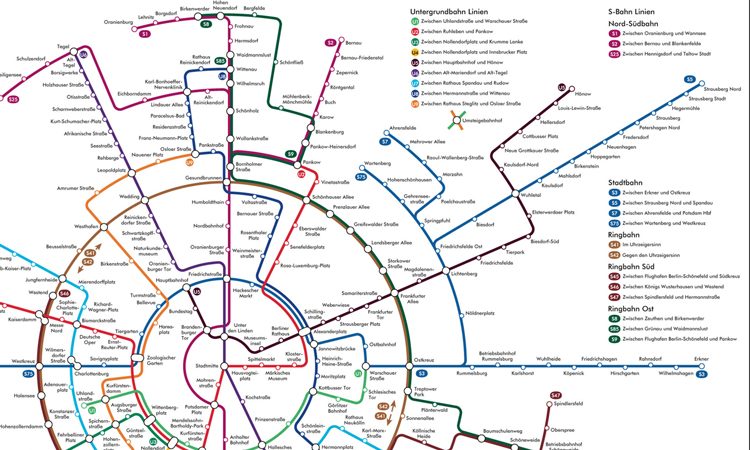Improving the design of metro maps
- Like
- Digg
- Del
- Tumblr
- VKontakte
- Buffer
- Love This
- Odnoklassniki
- Meneame
- Blogger
- Amazon
- Yahoo Mail
- Gmail
- AOL
- Newsvine
- HackerNews
- Evernote
- MySpace
- Mail.ru
- Viadeo
- Line
- Comments
- Yummly
- SMS
- Viber
- Telegram
- Subscribe
- Skype
- Facebook Messenger
- Kakao
- LiveJournal
- Yammer
- Edgar
- Fintel
- Mix
- Instapaper
- Copy Link
Posted: 6 September 2018 | Peter B. Lloyd - University of Kent | No comments yet
Peter B. Lloyd, a PhD student at the University of Kent, details how a collaborative project between the universities of Kent and Essex is finding ways to recognise navigational problems and improve the usability of metro maps.


A subway map is not just a tool for finding directions; it is an invitation to use the subway and a reassurance that it is safe and understandable. The U.S. Department of Transport recognised this at the end of the 1970s and recommended that the map should be part of a transit company’s marketing, but it is only in the last decade that researchers have started to discover what makes a subway map usable.
A group of Italian researchers confirmed the theory that many people prefer to use automobiles over subways, even when there are clear benefits in terms of time and cost in catching the subway train1. Travellers have their own personal reasons for their transportation choices, sometimes straightforward and sometimes subtle. But there is a wealth of anecdotal evidence proving that travellers can be deterred from using rapid transit because subway maps are sometimes hard to understand.
Transit blogger Cameron Booth has a ‘hall of shame’ in which he presents his own selection of the world’s worst transportation maps2. Many of us have experienced being baffled by subway maps, taking longer than necessary to work out a route, being misled into longer routes than necessary, missing connections or ending up in the wrong place altogether. Several websites have rankings of the most confusing subway maps in the world.
The rest of this article is restricted - login or subscribe for free to access
Thank you for visiting our website. To access this content in full, you'll need to login or subscribe.
It's completely free to subscribe, and in less than a minute you can continue reading. If you've already subscribed, just login.
Why subscribe? Join our growing community of thousands of industry professionals and gain access to:
- Quarterly issues in print and/or digital format
- Case studies, whitepapers, webinars and industry-leading content
- Breaking news and features
- Our extensive online archive of thousands of articles and years of past issues
All for free!
Click here to Subscribe today Login here
Related topics
Passenger Experience
Issue
Issue 3 2018
Related organisations
University of Kent
Related people
Peter B. Lloyd







